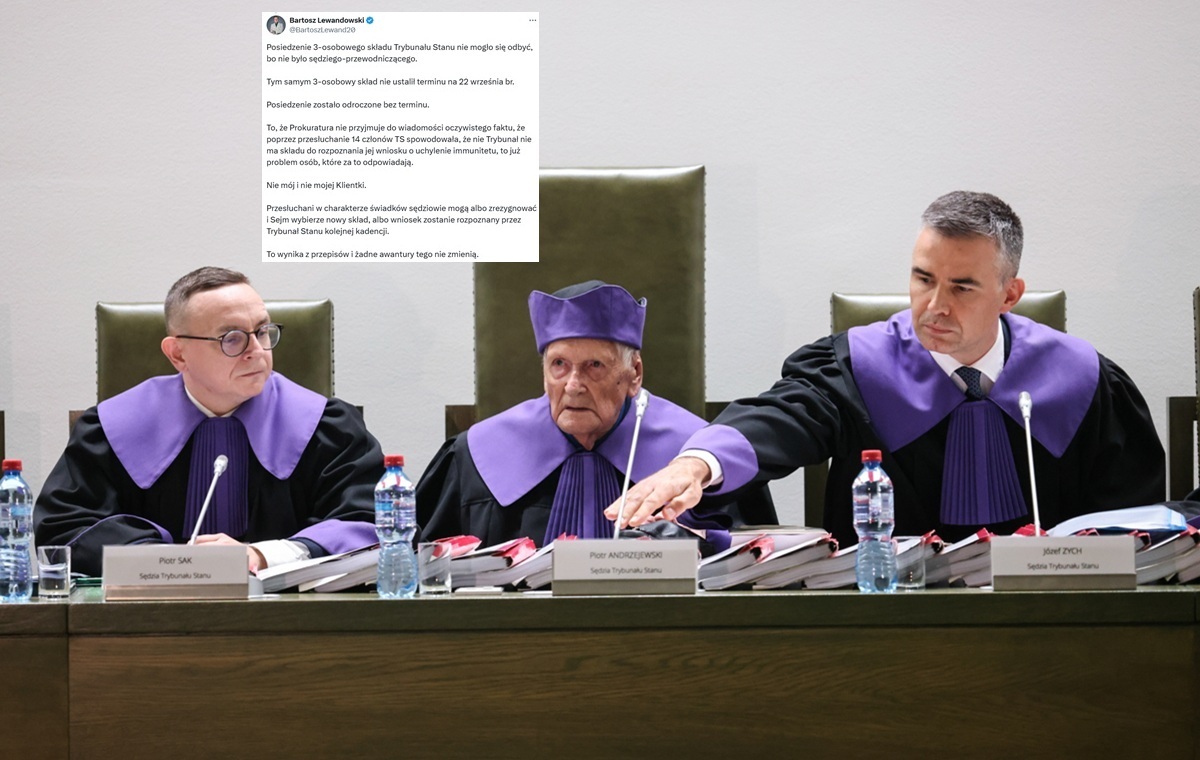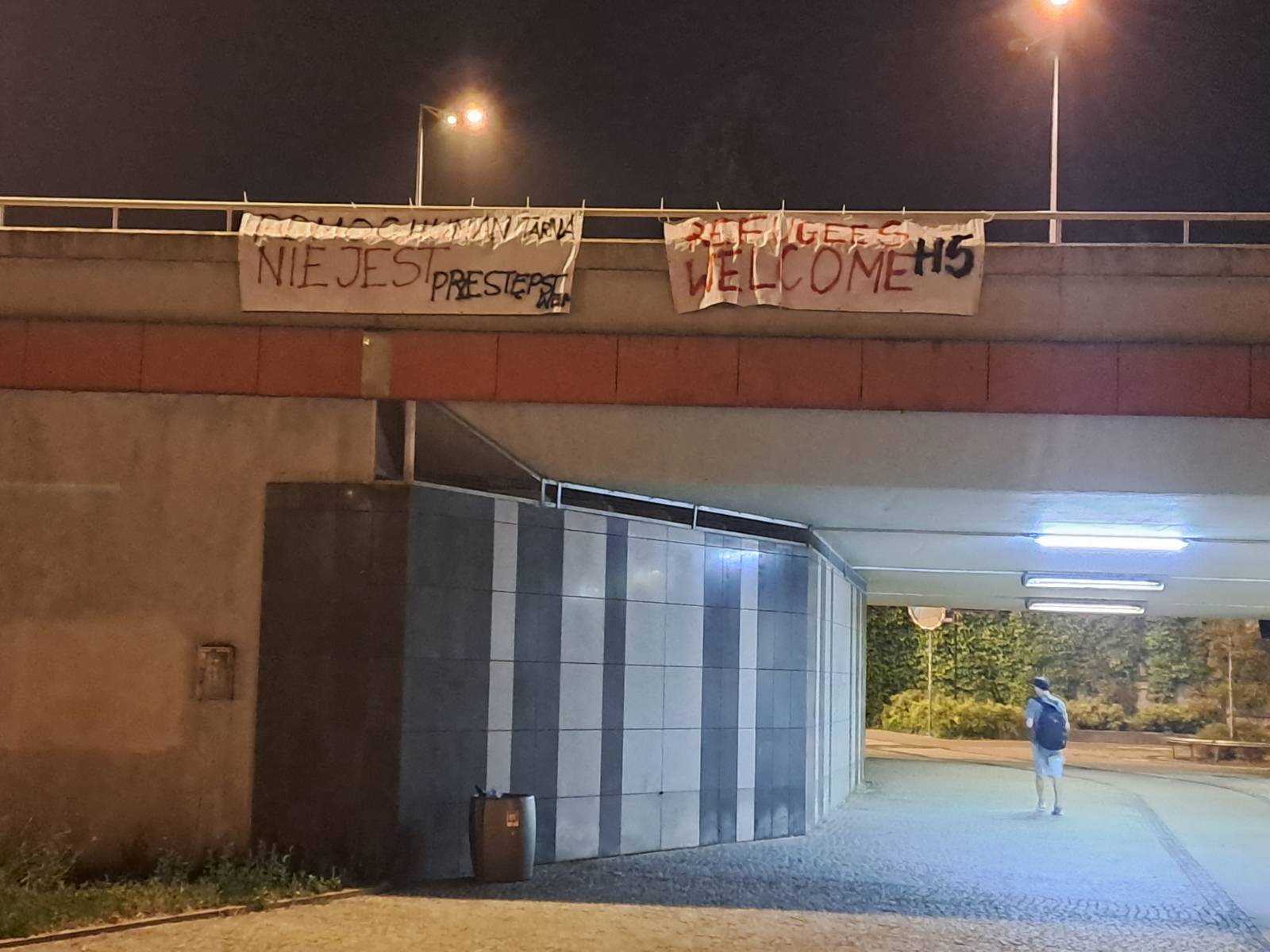Obligation to indicate the addresses of the parties to civilian proceedings
Pursuant to Article 126(2)(1) of the Code, where the procedural paper is the first letter in the case, it should contain the designation of the place of residence or registered office and the address of the parties, their legal representatives and representatives.
The mention in the first pleading, and in peculiar in the application, to the place of residence of the parties shall enable the court to communicate with the parties, and shall constitute a relative, supporting criterion for their recognition and individualisation (resolution of the ultimate Court of 26 February 2014, III CZP 137/13, Biuletyn SN 2014, No 2).
Service of a suit by a bailiff
If the defendant, who is simply a natural person, despite the repeated avisation, has not received the individual sent to the address of the application, another procedural letter or judgement giving emergence to the request to defend his rights, and no letter has been served on him in the case before and no peculiar provision providing for the effect of service shall apply, the president shall inform the claimant thereof by sending him a copy of the judicial letter to the suspect and by requiring him to do so. service of this copy of the letter to the suspect via the bailiff (Article 139 1 § 1 kpc). specified rules shall not apply if, despite the failure of the addressee to receive the correspondence, the validity of the defendant’s address indicated in the application does not rise any uncertainty (§ 11).
The plaintiff shall, within 2 months of the date of transportation of the above obligation, either submit a confirmation of the service of correspondence to the suspect through the bailiff or return the correspondence together with proof in writing that the suspect resides at the address indicated in the application. After an unsuccessful expiry of the time limit, the provision of Article 177(1)(6) kpc shall apply, stating that the court may suspend proceedings of its own motion if, by reason of the absence or indication of the incorrect address of the plaintiff or the failure of the plaintiff to indicate within the prescribed time limit, the defendant's address cannot be put forward for further proceedings.
Where the claimant demonstrates in writing that the suspect resides at the address indicated in the application, the correspondence sent in the manner provided for in Article 139(1) of the Code shall be deemed to have been served. Later transportation of this correspondence by the bailiff to the same address does not consequence in the start-up of time limits, which the law binds to service, to be instructed by the suspect in that act.
If the claimant resides or is established abroad and is not replaced by a lawyer, legal advisor or patent lawyer exercising his profession in the Republic of Poland, in the event that the suspect has not received a letter sent via a postal operator, the court of its own motion shall order the suspect to supply correspondence through a bailiff.
Establishment of an unknown person’s guardian from the place of residence
In the case of the chairman, he shall appoint a curator if the applicant appears to be unaware of the party's whereabouts. In cases for maintenance claims, as well as in cases for determining the origin of the kid and the related claims, the president shall, before setting up a probation officer, conduct an appropriate investigation to find the defendant's residence or residence (Art. 144 §1 kpc). The president will announce the appointment of a curator publically in the court building and the mayor's premises (Mayor, president of the city), and in matters of greater importance, erstwhile he considers it necessary, besides in the press.
Upon service of the letter to the probation officer, service shall take effect. However, the court may make service effective on expiry of the prescribed time limit from the date on which the announcement was published in the court building.
The probation officer thus appointed shall be empowered to carry out all activities involving the case
Obtaining the defendant's address in the municipal registry
The mayor (Mayor, city president) keeps a registry of the inhabitants of the municipality according to its local characteristics. The registry shall collect the data of persons who have carried out the reporting work in the municipality concerned. Data from resident registers may be made available to persons and organisational units if they show a legal interest.
Pursuant to Article 46(2) of the civilian registry Act, individual data from the registry of residents shall be made available to persons and organisational units upon request, either in writing or by electronic document, utilizing electronic means of communication.
The requested authority shall refuse, by administrative decision, to make available the unit data if the conditions laid down in Article 46 are not met, i.e. if the applicant fails to show his legal interest in obtaining the data in the municipality.
The provision of data from the registry of residents is made available to individuals for a fee. The fee is PLN 31.
Definition of the word ‘address’ utilized in Article 126 of the civilian Procedure Code
As a consequence of the amendment introduced in Article 126 of the Law of 10 May 2013 amending the Act – Code of civilian Procedure, which entered into force on 7 July 2013, it is now clear that the suit should contain, in addition to the designation of the defendant's place of residence (i.e. the place where the individual is resident with the intention of permanent residence), besides his address.
However, the doubts remain, since it is not possible to draw a clear conclusion from the text of Article 126(2) of the Code itself, whether the word ‘address’ means the address of residence or any another address.
First of all, mention should be made to the language directives and it should be stated that, according to all the typical dictionaries of the Polish language, the address should be understood to mean the place of residence of the individual or ‘residence’ of the institution (business, legal person, etc.), with the link of phrase ‘addresses of the individual (pages, companies, etc.)’ always meaning the place of residence of that individual and not of any another person.
If, therefore, the word ‘address of the parties’ is utilized in Article 126(2)(1)(c), this may, in respect of natural persons, mean only the addresses of the parties’ residence and not the address of their establishment of employment, in peculiar that the word ‘address of the party’ does not exist; the address has a natural individual — and that is the address of the party’s residence — and its address has a place of employment and, as a rule, depending on the legal form of the action, its place of residence (yes: resolution of the ultimate Court of 17 July 2014, Ref. Act III CZP 43/14).
In addition, the explanatory memorandum of the draft Act of 10 May 2013 clarifies that the introduction of the word ‘address’ in Article 126(2) of the Code means, in respect of natural persons, their address of residence (Seym VII of the word of office, print 988) (yes: resolution of the ultimate Court of 17 July 2014, Ref. Act III CZP 43/14).
Page address elements required
In civilian proceedings, the address of the organization should include the name of the locality, the street name (if there are streets in a given locality), the number of the home and the flat and the postal code number, which will guarantee appropriate service of the court transportation page (yes: order of the Szczecin Court of Appeal of 28 July 2015, Ref. Act I AC 589/15).
Indication of the defendant's workplace address
It was repeatedly stressed in the judicature that the work to indicate the address of the place of residence does not exclude the address of the defendant's place of work. This surely applies to public people. In particular, the importance of correctly identifying the address of the place of residence, e.g. in determining the jurisdiction of the court, individualising the parties to the process, or yet ensuring the rights of the suspect related to the participation in the case (including, in particular, determining the effectiveness of the service of the court letters addressed to it).
At the same time, it is clarified that, in view of the anticipation (under the control of administrative courts) of obtaining access to the reporting data by persons of legal interest (now, for example, pursuant to Article 48(2) of the Act of 24 September 2010 on the registration of the population), the request to indicate the address of the place of residence is not a disproportionate requirement, which unduly restricts the right of the claimant to court.
Similarly, the Court of Appeal of Poznań recognised in its decision of 7 November 2014, Ref. Act IACz 1823/14 stating that the address of the establishment of employment (in this case it was a court) in which the defendants were employed did not complement the absence of a formal application referred to in Article 126(2) of the Code referred to in Article 187(1) of the Code. The request to indicate the defendant's place of residence applies only to legal persons and, in the event that the plaintiff is suing natural persons, he should state their place of residence, regardless of the profession pursued by the defendants.
Consequences of not giving the defendant’s address in the lawsuit
It is assumed that the defendant's failure to give his address of residence in the application prevents him from being given appropriate running, and so constitutes the basis for the return of the application (Article 130 §2 of the Code; cf. ruling of the ultimate Court of 31 January 1962, and order of the ultimate Court of 26 April 1979, II CZ 44/79, OSNCP 1979, No 11, item 224).
Before that happens, however, the president calls on the party, under the rigor of returning the letter, to complete the deficiency of an address within a week (§ 1 of the said article). Only after the deadline has expired shall the president return the letter to the organization (§ 2 ).
Return due to failure to address the page and anticipation of retrial
Repayment of the application for formal reasons does not prevent the plaintiff from reopening proceedings on the same subject (yes: Resolution of the Court of Appeal in Katowice of 13 August 2013, Ref. Act V ACz 701/13).
Provide an incomplete suspect address
The work to indicate the place of residence of the organization does not fulfil the indication of the street only without the building number. This will call for the plaintiff to remedy the formal deficiencies of the application by giving an exact address (yes: judgement of the Court of Appeal in Szczecin of 29 September 2017, Act I AC 634/17).
Suspension of proceedings due to failure to indicate the defendant’s address
If the plaintiff pointed out in the application the defendant's address, although in the course of the trial it was found that this address was incorrect and the suspect had not been successfully served with a copy of the application – in specified a case the court of First Instance required the plaintiff to indicate the correct address of the defendant, setting a time limit for that purpose.
Pursuant to the regulation laid down in Article 177(1) of Capt 6 kpc, where, due to a failure to indicate within the prescribed time limit, the defendant’s address cannot be re-assigned, the court may suspend proceedings in the case (yes: judgement of the ultimate Court of 10 June 1997 II CKN 326/97, OSNC 1997/11/183).
Suspension of proceedings following an indication of the defendant's outdated address
If judicial correspondence sent to the suspect to the address indicated by the plaintiff has been returned with the servicer's endorsement that the addressee has moved, this means that the address indicated by the claimant is not the current address of the party's residence. This calls on the claimant to indicate the defendant's current address within the prescribed time limit.
If the claimant fails to comply with this work within the time limit, it will be reasonable to suspend the legal proceedings pursuant to Article 177(1), point (6)(6)(c). It is not possible to grant a further run (yes: the order of the Court of Appeal in Krakow of 19 January 2017. Ref. Act I ACz 2495/16).
Initiation of suspended proceedings as a consequence of the establishment of a curator for an unknown individual from the place of residence
Where the conditions laid down in Article 144 of the Code are found to be met, resulting in the appointment of a curator for a individual not known from his place of residence, the suspended proceedings shall be taken.
Failure to indicate the address of the associate in the non-trial procedure
Failure to indicate the address of a associate in a non-trial procedure shall not oblige, unlike in the case of a suspect in a trial, to suspend the proceedings. The Court of First Instance shall, of its own motion, guarantee the participation of all curious parties in the proceedings (Article 510(2) of the General Court).
This is an exception to the general regulation that the work to designate the defendant’s place of residence shall be borne by the claimant (based on the content of Article 1266(2)(1) of the Code). This means that it does not mean the parties to the process, by providing data allowing them to be correctly identified (cf. the ultimate Court order of 17.11.2005, IV CK 313/05, LEX).
Indication of the address of the associate in the proceedings for the acquisition of the inheritance
In the procedure for determining the acquisition of the inheritance of Article 670 of the Code, the court shall be required to find the ellipse of heirs ex officio, and that burden may not be transferred to the applicant. The intent of the application is to establish the acquisition of the inheritance after a peculiar heir, without the request to indicate the persons to whom the uncovering is to take place. The non-pronouncement of these persons, and even more so their addresses, cannot so be treated as a deficiency of formal application.
If the information offered by the applicant proves insufficient to find by the court the persons afraid or their addresses, the court of succession may, as the case may be, call on the heirs by a announcement (Article 672 of the Code), or, where the associate is identified and the place of his residence cannot be established, appoint a curator (Article 510(2) of the Code).
Thus, the failure to indicate the address of the individual entering the account as an heir does not prevent the investigation of the acquisition of the inheritance (yes: Order of the Toruń territory Court of 26 July 2013, Ref. act VIII Jun 434/13).
Wrong address of the suspect in electronic registrar proceedings
If the claimant brought an action in an electronic registrar’s proceedings, containing the incorrect address of the defendant, after which the case was referred to the court by general jurisdiction, the application of Article 177(1)(6) of the General Court, which provides for the anticipation of suspending proceedings of its own motion, is not justified. This provision remains in opposition to the wording of Article 505 37(1) of the Code.
Pursuant to the wording of Article 505 37 §1 of the Code, after the case has been referred to the court by general jurisdiction, failure to indicate the applicable address of the suspect to which service could be effectively carried out, the proceedings should be dismissed. That provision does not supply for the suspension of proceedings. In the event of failure to remedy the formal deficiencies of the application, it would so not be appropriate to return the application in a situation where there has already been an electronic redress procedure.
The request to remedy the procedural deficiencies of the application by the plaintiff is due to the specificity of the erstwhile electronic registrar.
The fact that, following the transfer of the case to the court of general jurisdiction, the case is re-examined in the examination of the conduct of formal conditions, even though the procedure was already in progress. If, therefore, pursuant to Article 505 37 §1 of the General Court, in conjunction with Article 505 34 §1 of the General Court and Article 499(4) of the General Court, the president of the Court of First Instance re-examines the formal conditions of the application, in accordance with general principles and not with liberalised requirements characteristic of the electronic review procedure, he may require the claimant to indicate the current address of the defendant, since the address given in the application lodged in the electronic review procedure is obsolete (yes: the order of the territory Court of Bydgoszcz of 30 October 2013, Ref. act II Jun 665/13).
Obligation to indicate the defendant's address and the rule of the right to court
The Constitutional Tribunal in its judgement of 23 October 2006, SK 42/2004, OTK-A Zb. Urz. 2006, No 9, item 125, stated that requiring the address of the suspect to be indicated may restrict his right to court, but this is not a universal mention point to the issue under consideration.
The right to court is not absolute in the sense that it is excluded to set any procedural barriers or to require the fulfilment of another legal formalities; on the contrary, it is inherently linked to the existence of certain, sometimes comparatively burdensome restrictions.
Reimbursement of the application due to ignorance of the defendant's address and European law
Reimbursement of the application as a consequence of the deficiency of determination of the defendant's place of residence was the subject of a complaint to the European Court of Human Rights in R.A. v. Poland, 60606/11. On this substance (Decision of 10 June 2014) The Court did not see any infringements which would deprive the organization of his right to a fair trial and access to the court by imposing an work to indicate the defendant's address.















